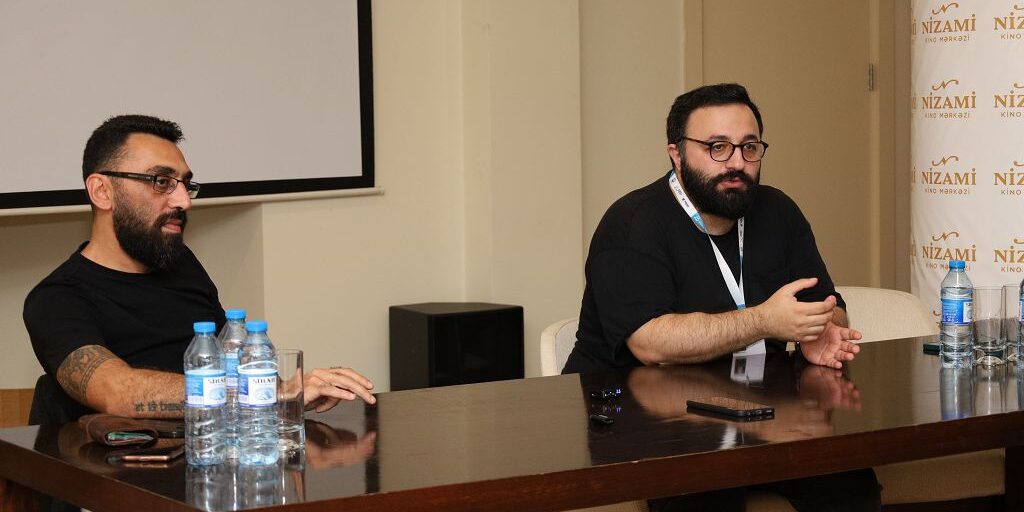On October 7, within the framework of the 15th Baku International Film Festival, a panel discussion on joint film production took place with the participation of Emil Najaf, the director of Rental Azerbaijan Film Company, and Emrah Kilich, a Turkish producer and expert in joint projects. In the first part of the event, experts shared their views on the history of joint film production, its role in the development of filmmaking, and its role in films festival life.
Emil Najaf said that joint film production projects emerged in Europe, mainly in France and Italy, after World War II to counter Hollywood’s cinematic dominance. Later, they gained wider scope, culminating in the European Convention on Cinematographic Co-production. “As a result, from the 1990s onwards, 60-70% of the films awarded at major festivals are co-productions,” he noted. “Today not just two, but three, four, sometimes even five countries pool their efforts to produce a film. Unfortunately, for both objective and subjective reasons, this practice isn’t widely adopted in our country.”
Speaking about Turkey’s co-production experience, producer Emrah Kilich stated that co-production in Turkey is relatively new. “Co-production in Turkey has increased since the amendments to the Cinema Law (Regulation on Support for Films – ed.) were adopted in 2004,” he added. “For example, new platforms supporting co-production projects such as TRT 12 punto have emerged. TRT 12 punto functions as a co-production market, awarding three or four projects with financial support each year. A foreign producer must find a partner from Türkiye and submit an official application through them to participate in TRT 12 punto competitions. And their projects must be at the script stage.”
It should be noted that Azerbaijani director Hilal Baydarov’s film “Sermon to the Fish,” which screened at prestigious film festivals, was made with the support of TRT 12 Punto.
Currently, Cinema Directorate at the Ministry of Culture and Tourism of Türkiye has a dedicated budget for co-productions, allowing it to fund not only domestic films but also international projects. Additionally, the institution offers support for short films, documentaries, feature debuts, post-production, and distribution.
The speakers then took questions from the audience and the panel discussion continued with a Q&A session. When asked about the application process for co-productions, Emrah Kilich emphasized the importance of securing funding from a local government agency before applying to foreign platforms. He explained that this is a crucial prerequisite for any international co-production. Another essential condition is being a party to the European Convention on Cinematographic Co-production. However, co-productions from non-party states are also possible through bilateral agreements.
The European Convention on Cinematographic Co-Production was adopted under the auspices of the Council of Europe in 1992. Azerbaijan joined this convention in 1999 under a decree issued by the late President Heydar Aliyev.
aki.az

